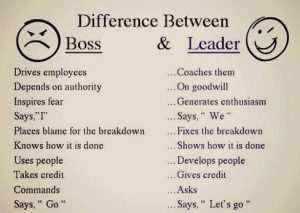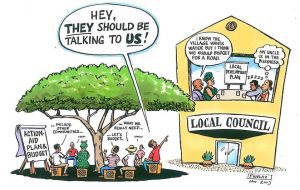Participatory Democracy
UnitedPeople seeks to give citizens greater ability to control daily factors which affect their daily life.
To do this, we seek to restore an improved direction original sought by the founder of the state. Participatory Democracy is that process. It gives citizens far more say and ability in decision making processes not just every four to five years - but all the time - every month or year.
A similar process was started in directions during earlier Irish constitutions but poor governments since deliberately watered it down, rendering it ineffective and meaningless. Something they wanted as they didn't wish to be too accountable to their very own public, too often. For that, to the present day, Ireland has gain many a bad elected representative who has got away with too much.
UnitedPeople seeks to improve such poor accountability through Participatory Democracy. So much so, its an underlying core aim which is deliberate constituted into its own party constitution.
In short: Participatory Democracy means all citizens can equal get involved as they wish to. Their elected are far more accountable, all year - every year - not just every five years. There is the free public referendum creation ability and there is "Recall", the ability make changes regarding elected when dire situations occur, bad political behavior manifests and other issues that are deemed by a democratic, citizen voting number, to be damaging to the state.
Participatory Democracy is a system which some countries have adopted, some for a long successful time and that today, others are looking toward in order to improve their nations democratic process. If you are new to the term participatory democracy, you have yet to discover how coming generations of citizens can have more control over their every day lives.

A number of years ago there was a Fianna Fail yearly think-in gathering. At this gathering, the elected members were reminded that their loyalty was first to the party, then to their agenda and finally to the people they were elected to serve.
The meeting was nothing unusual. It was a gathering of people to which the party was trying to give an impression, they were being listened to. In fact, there was internal rumblings within the party and covertly, it was made plain that no arguing or challenging the top table masters was to be allowed.
This sort of downward dictatorial style is all too prevalent in many parties today. If the parties have an official “Whip” or not, the imposed notion left with ordinary members is that they shouldn’t ever challenge those above them. They should not ‘rock the boat’ by trying to instigate changes they also saw as positive, more better for the public.
In a traditional Irish political party, the ordinary members elected their top table people. Soon here after, those same top table elected begin issuing their orders back down to the very members that put them there. Everyone lower down is supposed to fall in line.
If someone doesn’t, they are threatened with suspension, withdrawal of any additional membership rights they have, told they might be relieved of a position they additional hold or at worst, expulsion. They either tow the party heads dictates or they are tainted a troublemaker and made pay for it.
The core members if they are lucky, might get to replace some of the top table at a yearly meeting by vote. More often than not, those originally at the top table, don’t wish to lose their positions of power. This is understandable. Their positions give them – let’s be honest – an ego boost as they are looked up to, definitely some privileges at times and while at the top table, are more open to be part of any future government or board which might be later created elsewhere. To be slipped down into the lower ranks again, to some, would be an ultimate degradation.

Those at the top table then wish to stay where they are. They maintain their positions by influence and clever hinted promises of personal possibilities, to individual members that they see as influential to others also. When suspecting a challenge, the claws come out with quiet low, backstabbing, name tarnishing tactics or they clever move to solidify their position by weakening their challenging opposite through orders given down. If they are not obeyed, they are then hit with the party rule book – just as the top table heads have often created a situation so that it could happen.
Quite frankly, many core members knowing all this can go on or they too could be targeted, sometimes go along with the day to day dictates of their party and while having ideas of their own, don’t dare challenge the other party faithful who just blindly jump when they are told to.
Those that do think a party should be run in such a fashion, stand by their party and defend its policies of the week (even if they u-turn all over the place at various times). They meekly accept the way top table elected act and defend them and the party out of loyalty. meanwhile, the orders continue to come down from the top to the lower ranks, to follow – or else!

When you join a party that truly believes in Participatory Democracy, the first thing you should notice is that you are listened to. The next thing you should notice is that you, the core member, at all times are in fact, the top person in charge.
Yes, you and others might have elected people to a top table to act as party representatives beyond the membership itself. You are in fact the person that in charge. You along with other equal members give your orders to the top table, through a democratic vote taken on a decision or agenda to be made and then majority won.
Those at the top table are in fact, servants of the core members. If the top table servants don’t follow the order of the core members? The core members at any stage not just one a year or every five years if they were in government, can remove those at the top table for not following the democratic mandate given to them by their core members.
In other words, the power of the party far greater lies with the core members.

The Deliberate Misconception
The last thing some from other parties want, while they reside in their top positions, is that their members finally grasp a concept that the core of a party should be the ones, controlling it all year, every year. If its through fearing loss of rank, privilege or future opportunity, other older parties will attempt to besmirch the idea that Participatory Democracy won’t work. Tell that to Switzerland that’s been operating a successful Participatory Democracy system for over 150 years…
When that tactics doesn’t work upon the more educated, comes the tainting that this socialist idea is just more left wing antics. Nothing could be further from the truth…
Participatory Democracy in fact, can be used in a party of the left, a party center based or in fact, a more right-wing party. Each party could in fact, if allowed, give their very core members greater say, greater power to be heard and ability to instigate democratic based change when and where needed all year around. Those not wishing Participatory Democracy to be adopted out of fear of losing rank, privilege or opportunity however, doesn’t wish their core members to fully realise this. The topic is not discussed and if anyone tries bring it up, “trouble-maker” taint is applied, accused of not being loyal and they could be ostracised.
.
The Crunch
Core members and top table elected in a Participatory Democracy first owe their loyalty not to themselves or indeed their party. They in fact, owe their first loyalty to the public. It’s from the public that is learned of the core issues that need to be addressed. It is from the public that political and economic situations are highlighted and then sought to be addressed. it is through the public democratic process that then decisions are confirmed and a Participatory Democracy party instigates the public’s orders.
The crunch of the matter is that a Participatory Democracy member doesn’t puts his or her own opinion ahead of the public’s expressed wishes and concerns. They have equal right to voice an opinion – but when it comes to loyalty, that belongs to the people of a nation first and the party itself, comes after that.
A Participatory Democracy party is there to serve the people – not the people there to serve the party. Fine Gael, Fianna Fail and Labour alone, might be quaking in their boots at the thought of it all.
No wonder they continue to completely blank a top polling, Constitution Convention 83% public result that called for Participatory Democracy to be re-instated?
The only remaining question is now – do you want a party in government that is more loyal to itself first, way ahead of the people they are actually elected to represent? If so, how has that worked out so far in Ireland’s decades of recent history?

